The podcasts and videos listed below offer information about the Embodied Recovery for Eating Disorders (ERED) approach to supporting recovery and some of ERED’s foundational theories, models and modalities.
Embodied Recovery For Eating Disorders Approach
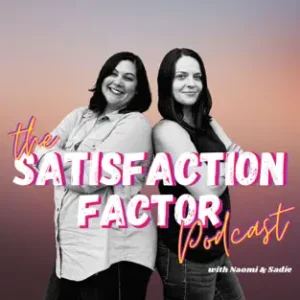
The Satisfaction Factor Podcast
Episode 48: Embodied Recovery and Diet Culture as an Attachment Figure
Heidi Andersen speaks about Embodied Recovery for Eating Disorders, diet culture as an attachment figure, the relational (satisfaction) cycle as it relates to our relationship with food and the importance of building communities of belonging in the recovery process.

The Emotional Eating (and Everything Else) Podcast
Episode 86: Embodiment as the Antidote to Negative Body Image
Heidi Andersen talks about the topic of embodiment, something that she sees as vital to the healing of food and body issues. And in case you're not quite sure how to define embodiment, Heidi describes it as: The ability to land safely in our body in the present moment, just how we are.

Beyond Therapy
Wednesday Jan 04, 2023: Embodied Recovery for Eating Disorders: A Primer
Rachel Lewis Marlow offers us a primer on her paradigm, Embodied Recovery for trauma, eating disorders, and dissociation. We'll discuss the basic principles of Embodied Recovery, which offers an intersectional, non-pathologizing paradigm blending polyvagal theory, attachment theory, and ecological approaches to identity.
Learning Objectives
- Name the 4 basic principles of Embodied Recovery
- Identify connections between eating disordered behavior and attachment injury
- Explore how our threat-response and connection-seeking neural networks are impacted attachment at individual, family, and institutional levels
- Distinguish safety from protection.

A More Beautiful Life Podcast
Episode 23: Embodied Recovery and A More Beautiful Life

Soul Sessions Podcast
Dec 9, 2020: Embodied Recovery with Paula Scatoloni and Rachel Lewis-Marlow
In Embodied Recovery, I talk with Paula Scatoloni and Rachel Lewis Marlow about complex trauma and disordered eating from a sensorimotor and somatic psychotherapy perspective.
Rachel and Paula also talk about their own history with trauma, disordered eating and working in this field, what is sensorimotor and somatic psychotherapy?, what is embodied recovery?, the body as a resource, what is the window of tolerance?, emotional regulation and dysregulation, attachment trauma, relational trauma, interpersonal trauma, CPTSD and how one begins to heal from disordered eating and eating disorders.
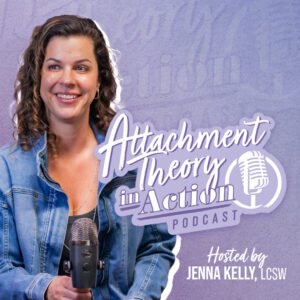
Attachment Theory in Action
Tuesday Jul 07, 2020: Applying Attachment Theory to Eating Disorder Treatment - Part 2 (with Paula Scatoloni & Rachel Lewis-Marlow)

Attachment Theory in Action
Jun 30, 2020: Applying Attachment Theory to Eating Disorder Treatment - Part 1 (with Paula Scatoloni & Rachel Lewis-Marlow)
Karen welcomes Paula Scatoloni & Rachel Lewis-Marlow, both of whom specialize in eating disorder treatment, discuss how attachment theory can be applied to the treatment of eating disorders. Part two of their conversation will be released on Tuesday, July 7th.
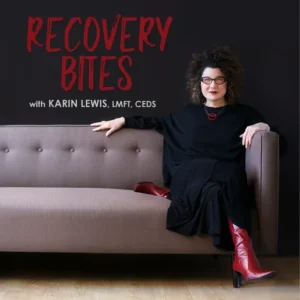
Recovery Bites
June 22, 2020 | Episode 10: Somatic Healing with Paula Scatoloni, LCSW
In this episode, I am joined by Paula Scatoloni, LCSW, CEDS, SEP. Paula is a somatic-based psychotherapist, Certified Eating Disorders Specialist, and Somatic Experiencing™ practitioner in Chapel Hill, NC, and has worked in the field of eating disorders for over two decades. Paula co-developed the first intensive outpatient program for eating disorders in the U.S with Dr. Anita Johnston. She is the co-founder of the Embodied Recovery model and the Embodied Recovery Institute in Durham, NC.

Stuck Not Broken
May 2020: Eating Disorders p1 with Rachel Lewis-Marlow and Dr Laura Oyer
Justin Sunseri is joined by Dr Laura Oyer and Rachel Lewis-Marlow to discuss eating disorders and the PVT plus a lot of somatic stuff around ED. Must listen.
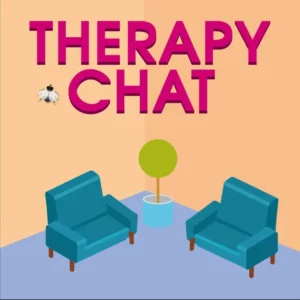
Therapy Chat Again
March 1, 2020 | Episode 219: Attachment, Somatic Work + Sensory Processing In Therapy With Paula Scatoloni + Rachel Lewis-Marlow
On today's episode host Laura Reagan, LCSW-C speaks to Paula Scatoloni and Rachel Lewis-Marlow about attachment, somatic work and sensory processing in therapy.
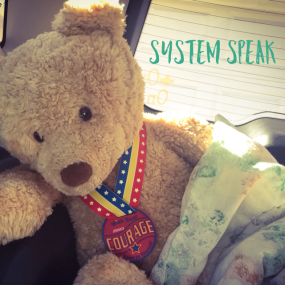
System Speak Podcast
August 21, 2019: Guest: Rachel Lewis-Marlow
Rachel Lewis-Marlow is a somatically integrative psychotherapist and shares with us about the importance of connecting to our bodies. She explains about the different ways different systems are organized, and different ways facilitating change. She explains how this “language of sensation and movement” applies to preverbal and nonverbal memory work, to eating disorders specifically, as well as to dissociation. She defines embodiment, so as to define dissociation as disembodiment.
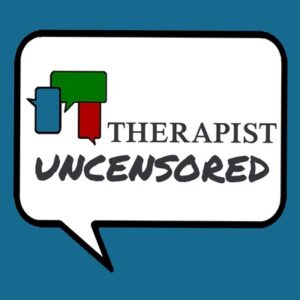
Therapist Uncensored Podcast
June 27, 2019 | TU99: Food, The Body, Trauma, & Attachment With Guests Paula Scatoloni & Rachel Lewis-Marlow
What if we flipped the script and learned to see our body as a messenger that needs to be heard rather than an obstacle to be conquered when it comes to our relationship with food? When we take physiological perspective, we learn that the body has much to say not only about food but also emotional regulation and our basic human needs for attachment and defense.
Using the sensory information, attachment system and working with defenses.
Who are our guests on this episode, you ask? Well here ya go, they are pretty bad-ass and they were interviewed by Dr. Ann Kelley.
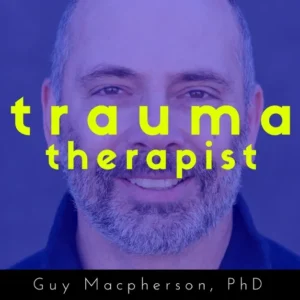
Trauma Therapist Podcast
Episode 336: Eating Disorders, Trauma & Healing with Paula Scatoloni & Rachel Lewis Marlow
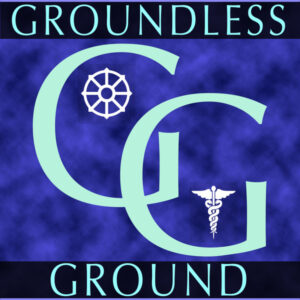
Groundless Ground Podcast
October 18, 2018 | S1:E13: Embodied Recovery for Eating Disorders: A dialogue with Paula Scatoloni, LCSW
Paula Scatoloni discusses the exciting paradigm shift emerging in eating disorder treatment. The Embodied Recovery training program offers cutting-edge methods for including the body as the missing link for effective treatment of disordered eating.

Therapy Chat Podcast
May 31, 2018 | Episode 136: Embodied Recovery
Laura Reagan speaks with Paula Scatoloni, LCSW, CEDS, SEP and Rachel Lewis-Marlow, MS, EdS, LPC, LMBT about embodied recovery.
ERED: Dietitian's Perspective
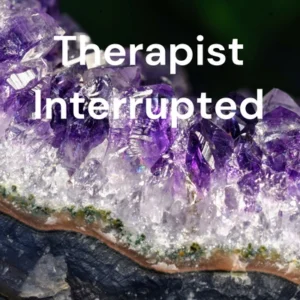
Therapist Interrupted
February 28, 2024: Episode 11: Annie: Eating Disorder and Dissociative Identity Awareness
In this this interview we discuss the ways both Eating Disorders and Dissociative Identities can be supportive of staying alive, finding balance, and part of a larger picture of moving towards what is needed. We discuss the difference between performative recovery and deeper healing. We explore how providers can find ways to work with and validate all of the parts/people involved in a dissociative system and to look at the important purposes each one brings.
Annie shares her personal journey of discovering her purpose, finding work she loves, and how this has intersected with her own growth and healing.
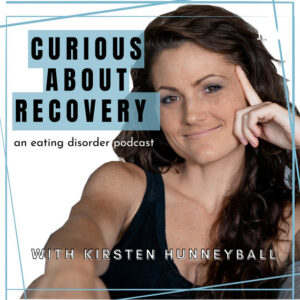
Curious About Recovery
EP29: Embodied Recovery for Eating Disorders (ERED) with Rachel Lewis-Marlow and Annie Goldsmith.
Rachel Lewis- Marlow and Annie Goldsmith join me from the Embodied Recovery Institute to talk about the importance of embodiment (for both the individual and the practitioner) in the process of recovery from disordered eating.
Embodied Recovery Institute facilitates trainings, consultation, and program development for physical and mental health professionals in EMBODIED RECOVERY for EATING DISORDERS (ERED) – a trauma-informed, relationally oriented, and neurobiologically supported approach to the treatment of eating disorders that weaves modalities and interventions based on the latest research in traumatology, interpersonal neurobiology, and child development. This embodied perspective draws on principles of the Polyvagal Theory, Interpersonal Neurobiology, Sensorimotor Psychotherapy®, Sensory Integration, and Body-Mind Centering®.
Some topics we explore in today’s episode include the Four Principles of Embodied Recovery for Eating Disorders (ERED), recognising that recovery is an additive process (and how the body physiologically responds to being in a space of defence versus safety/attachment when cultivating lasting behavioural changes), the importance of the practitioner cultivating embodiment in their own lives, using the body as a resource and understanding it’s native language, challenging traditional parameters for what recovery looks like, and cultivating safety as a primary tool for navigating the ability to nourish the body.

System Speak
November 19, 2020: Guest: Annie Goldsmith, RD, LDN
Our guest, Annie Goldsmith, is a registered dietician who works with trauma, and she explains how dissociation and digestion are connected. She explains why building safety and going very slowly is so important in bringing healing to both. She explains disordered eating and intentional eating. We discuss eating in the context of food scarcity and the pandemic. Trigger warning for discussion of disordered eating, eating disorders, weight stigma, and food-related traumas (with one example given).
Sensorimotor Psychotherapy

Trauma Therapist Podcast
Episode 412: Bruce Perry on Neurosequential Approaches to Treatment
Dr. Perry is a child and adolescent psychiatrist and neuroscientist. He is a senior fellow at the ChildTrauma Academy and an adjunct professor of psychiatry and behavioral sciences at Northwestern’s Feinberg School of Medicine.
In addition to having written more than two hundred scientific articles, Dr. Perry has coauthored with Maia Szalavitz two books for general audiences: The Boy Who Was Raised as a Dog: And Other Stories from a Child Psychiatrist’s Notebook and Born for Love: Why Empathy Is Essential — and Endangered.

Therapy Chat Podcast
Jan 25, 2018 | Episode 121: Bottom-Up Processing Using Sensorimotor Psychotherapy (with Pat Ogden)
Sensorimotor Psychotherapy draws from somatic therapies, neuroscience, attachment theory, and cognitive approaches, as well as from the Hakomi Method. Since the first course in Sensorimotor Psychotherapy was offered in the early 1980’s, it has gained international acclaim. The first book on Sensorimotor Psychotherapy®, Trauma and the Body: A Sensorimotor Approach to Psychotherapy, published in the Norton Series on Interpersonal Neurobiology in 2006 gained international acclaim. The sequel to the first book, Sensorimotor Psychotherapy: Interventions for Trauma and Attachment was published in spring of 2015.
Dr. Ogden is currently developing Sensorimotor Psychotherapy for children, adolescents, families, and couples with colleagues.
Video: Attachment or Trauma with Pat Ogden
Oct 13, 2016
Watch as Pat Ogden, founder of the Sensorimotor Psychotherapy Institute discusses whether Sensorimotor Psychotherapy works for Attachment or for Trauma.
Attachment and the Window of Tolerance

